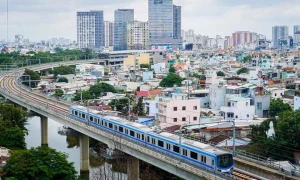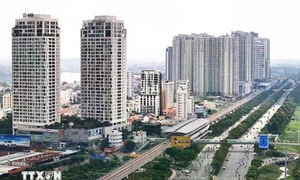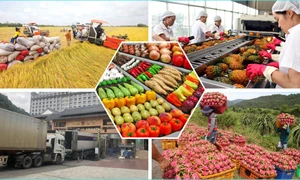
According to VNA, a young and growing population of around 100 million people, stable and supportive Government policies, extensive trade agreements with other countries, and favourable trends in manufacturing, exports and domestic consumption are driving logistics services, Chih Cheung, founding managing partner at SLP Vietnam, said.
But at the same time there were a lot of inefficiencies in the industry, he said, adding that logistics costs represent 20% of GDP in Vietnam while it is 7-9% in mature markets.
Vietnam ranks 11th out of 50 countries in the 2022 Emerging Market Logistics Index released by logistics and freight provider Agility.
The country’s freight and logistics market is expected to grow at a compounded annual growth rate of 5.5% in 2022 – 2027. Its economy has posted a strong recovery this year, growing at 8.93% in the first nine months.
Vietnam’s foreign trade was worth 557 billion USD in the period, representing a large freight and logistics market.
Dao Trong Khoa, deputy chairman of the Vietnam Logistics Business Association, said the logistics industry is benefiting from free trade agreements and the rapid growth of e-commerce.
E-Logistics has leveraged the efficiency of logistics services, he said.
However, the country’s logistics landscape is still fragmented and a master plan to attract investment and develop infrastructure to fully tap its potential is urgently required, he said.
Most domestic businesses are small or medium-sized with limited capital, technology and automation, and face fierce competition from foreign companies.
They only have a 30% market share with the remaining 70% held by foreign businesses, he said.
But domestic businesses are increasingly investing in infrastructure, modern warehousing and technology to increase their market share, he added.























